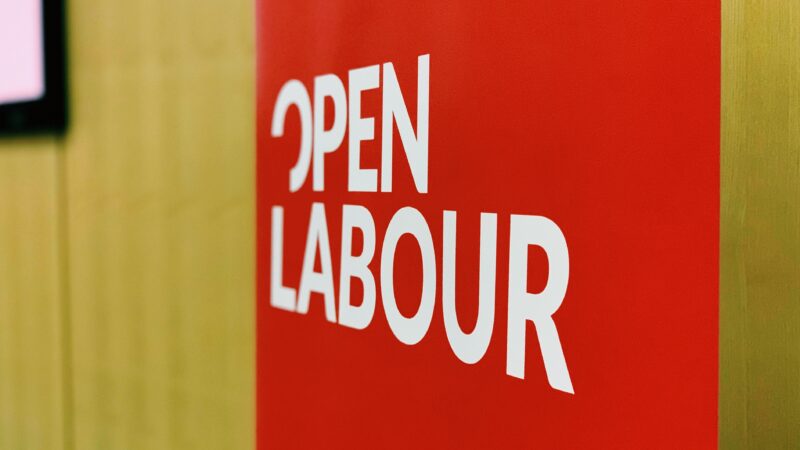
Leadership hustings
With Keir Starmer’s campaign still suspended as he supports his family after his mother-in-law became critically ill, the Holborn MP sent a speech to be read out and a video to be shown at the hustings instead. He tweeted the video on Sunday morning.
All three women expressed lots of personality, and each communicated their answers with admirable clarity and often a remarkably direct approach. Emily Thornberry in particular brought the hustings alive with blunt responses, such as “I hate the SNP”. She also described Boris Johnson as a “buffoon”. In her concluding remarks, she made a direct appeal to local parties, advising members to tell each other: “Get Thornberry on the ticket. She’s bloody good.”
Lisa Nandy was typically thoughtful. She stood out on the panel on the immigration question, to which she could offer an unambiguous reply that advocated freedom of movement because “we believe it is better”. She was also praised by audience members for her detailed answer on trans rights, highlighting the case of a constituent and the current waiting times.
Her remark that “when we argue about 2030 or 2050, we let Tories off the hook”, in relation to a decarbonisation target, was criticised by Labour for a Green New Deal but aligned with her GMB endorsement. (The union, along with affiliate group SERA, originally argued for a motion without a deadline at conference.)
Rebecca Long-Bailey did best when she talked about getting through to voters who aren’t paying attention. Making the case that Labour had some of its best policies in 2019 but “didn’t convey them properly”, she said the party gave the impression that it was “trying to save” voters – not empower them. She said her family was working-class but “we didn’t know we were working-class”.
One of the biggest rounds of applause was for Nandy’s answer on the work-capability assessment and the effect of the cuts on disabled people. “When Iain Duncan Smith got a knighthood,” she said, “it rewarded a system that broke people’s lives”. This was a keen reminder that turning your attention to the Tories is always a good way to get Labour members on board – that is, after all, why they joined.
The hustings used a different format from the one employed for the official party hustings in Liverpool last weekend. Instead of getting just 40 seconds to answer each question, they had 90 seconds, which significantly improved the debate. Perhaps the procedures committee will opt to vary the format for Labour’s next hustings.
Deputy leadership hustings
Richard Burgon promised to be a “campaigning deputy” in the style of John Prescott, rather than a “mischief maker”, and emphasised his support for open selections. He also wants to create a pledge card, as under Tony Blair’s leadership in 1997. He made clear that he was pitching to the Labour left without being particularly negative.
Ian Murray stressed that he was Labour’s only Scottish MP and pointed out that if the party only wins his seat at the next election it would require an unprecedented 13% swing to win overall. He argued that we should stop talking about “Corbynites” and instead have “one ‘ite’, which is unite”. He came across, as in all other hustings, as incredibly knowledgeable and with a clear unique selling point (being Scottish).
Dawn Butler said she would be “like John Prescott but without punching anyone”. She outlined a new “CORE strategy – campaign, organise, recruit, educate”. She called Boris Johnson an “Oxbridge educated toe rag” and repeated her ‘Something Inside So Strong’ piece. Butler was charming and brought tons of wit and personality to the hustings.
Angela Rayner said the party “didn’t feel like Open Labour” in the 2019 election, and vowed to “blow open our democratic structure”. During the hustings, she announced a new policy: “real people’s peerages”, whereby members and trade union affiliates would oversee Labour’s nominations until the party was able to abolish the House of Lords. She had significant support in the room with many applause lines.
Rosena Allin-Khan highlighted her personal background. She emphasised party unity, criticising how trigger ballots were held shortly before the election and said Labour must “democratise our party, but let’s not do it in a way that damages us”. She delivered a high-energy performance and well-considered answers.
The most notable aspect of the deputy hustings was that it opened up the conversation about an independent complaints system. It exposed the confusion in the party over the demand to “make the party’s disciplinary process independent” – a key pledge of the Board of Deputies, all ten of which have been signed by Murray, Rayner and Allin-Khan but not Butler nor Burgon.
Asked how such a process would work in practice, Burgon pointed out that other candidates had vowed to “take responsibility” for cases although this would contradict the independence of that process. Rayner said “we cannot outsource it”, though the demand involves just that unless it is interpreted as simply a call for independent oversight or advice, which is not the same.




More from LabourList
‘The hope that kills you’: Reflections from the final day in Gorton and Denton
MPs, union leaders and organisations react to ‘bruising’ Gorton and Denton result
A gory night for Labour